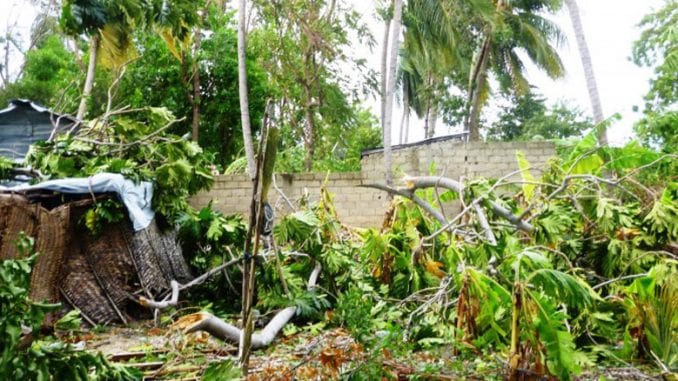
Hurricane Matthew devastated farms in Haiti, including coffee plants that were ready for harvest. An update on the process of recovery, and how you can continue to help.
In October, we reported on the damage done to coffee farms in Haiti due to Hurricane Matthew. At the time, the Barista Magazine team was in Miami, Florida, unsure if the hurricane would hit the city or not. We were there to interview Leticia Ramos-Pollock, co-owner of Panther Coffee, who is on the cover of the current issue of the magazine. In between interview questions, Leticia was also setting up a fundraiser for the victims of the hurricane. The damage done to the farms was not yet completely understood, but it was obvious that members of the coffee community needed to step in and help producers who had lost at that time an unquantifiable amount of their potential harvest.

Now that a few months have passed, we’re beginning to get more details about the coffee situation in Haiti. The fundraiser hosted by Panther Coffee raised over $6,000 in in-person and online donations, but there’s still a lot to do to address the severity of the damage. According to a press release made by Archdiocese of Miami, in conjunction with Diocese of Port-de-Paix in Haiti, many communities suffered sever damage, in particular communities in the lower northwest region of Haiti. “In Jean Rabel, most of the banana crops were completely destroyed, large numbers of cattle perished including goats, cows, and horses. In Bombardopolis, as in Jean Rabel, many homes were destroyed, many rooftops were ripped away, large numbers of cattle perished, and crops were devastated,” the press release states. “This storm has increased misery and hunger in the lower northwest region.”

Over 80% of the crops in the northwest region were decimated, including coffee crops, but there’s still hope—many of the farmers that Panther had been working with through a partnership with St. Thomas University didn’t lose all of their crops, and Panther plans on finding a way to purchase and use these coffees. It’s still unclear how these coffees held up or if they will taste differently due to the storm, but harvest is happening now and many of these questions will be answered soon.

For now, Panther is still providing continued support, and hopes to release a cold brew of the coffees that can be salvaged by March of next year. Profits from the sale of this release will go directly to the farmers in Haiti to help restore their coffee crops. Although the storm has passed and rebuilding efforts are active, there’s still a lot to do. You can continue to contribute to the efforts to help Haitian communities by visiting this website. The Diocese of Port-de-Paix is helping families by distributing livestock, providing seeds to replant crops, and giving health kits to prevent diseases such as cholera in the community.

